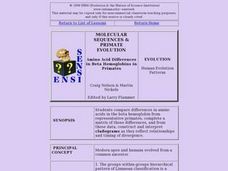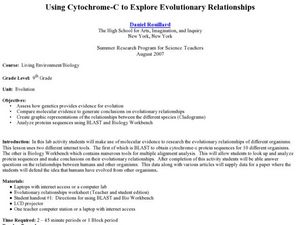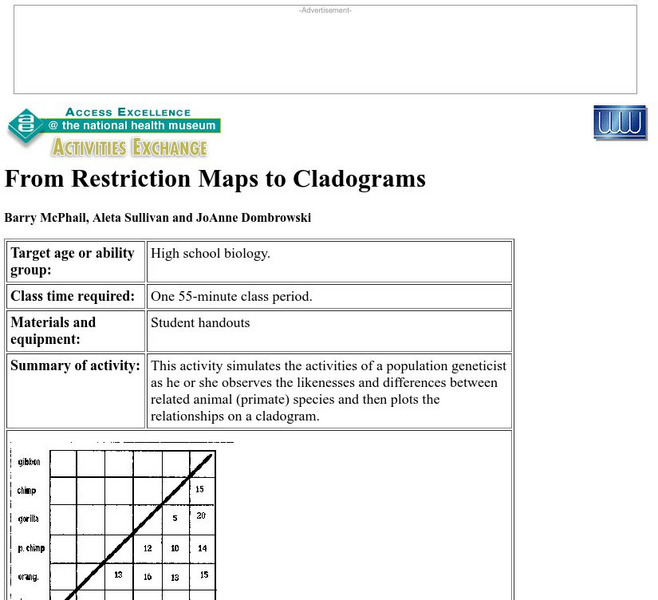Curated OER
Classroom Cladogram of Vertebrate/Human Evolution
Learners build a Colossal Classroom Cladogram of vertebrate evolution. After putting it together, they show the gradual, mosaic accumulation of the traits which we, as humans, possess.
Curated OER
Molecular Sequences & Primate Evolution: Amino Acids, Hemoglobins in Evolution
Students compare differences in amino acids in the beta hemoglobin from representative primates, complete a matrix of those differences, and from these data, construct and interpret cladograms as they reflect relationships and timing of...
Curated OER
Molecular Approaches to Evolution
Students examine the molecular studies of organisms that have led to a new era in their understanding of speciation and evolutionary relationships. Students study the allelic frequency of genes controlling specific molecules and assess...
Curated OER
Molecular Approaches to Evolution
Students are introduced to working with molecular data. The first activity does both simulated and original data are used to compare amino acid, protein or DNA differences to construct phylogenetic trees or cladograms. These activities...
Curated OER
Using Cytochrome-C to Explore Evolutionary Relationships
Young scholars analyze protein sequences. In this lesson on determining evolutionary relationships, students use the Internet tools BLAST and Biology Workbench to look at protein sequences. Young scholars will compose an essay that...
National Health Museum
Nhm: Restriction Maps to Cladograms Lesson
This lesson plan requires students to analyze DNA restriction maps to determine the differences in the sequence for several primates and humans. They then use the information to create a cladogram.
National Health Museum
Access Excellence: Molecular Biology/primate Phylogeny
This lesson plan involves comparison of amino acids to create a phylogenetic tree of primates. Learners will also use other species information to draw conclusions about evolutionary relationships.








